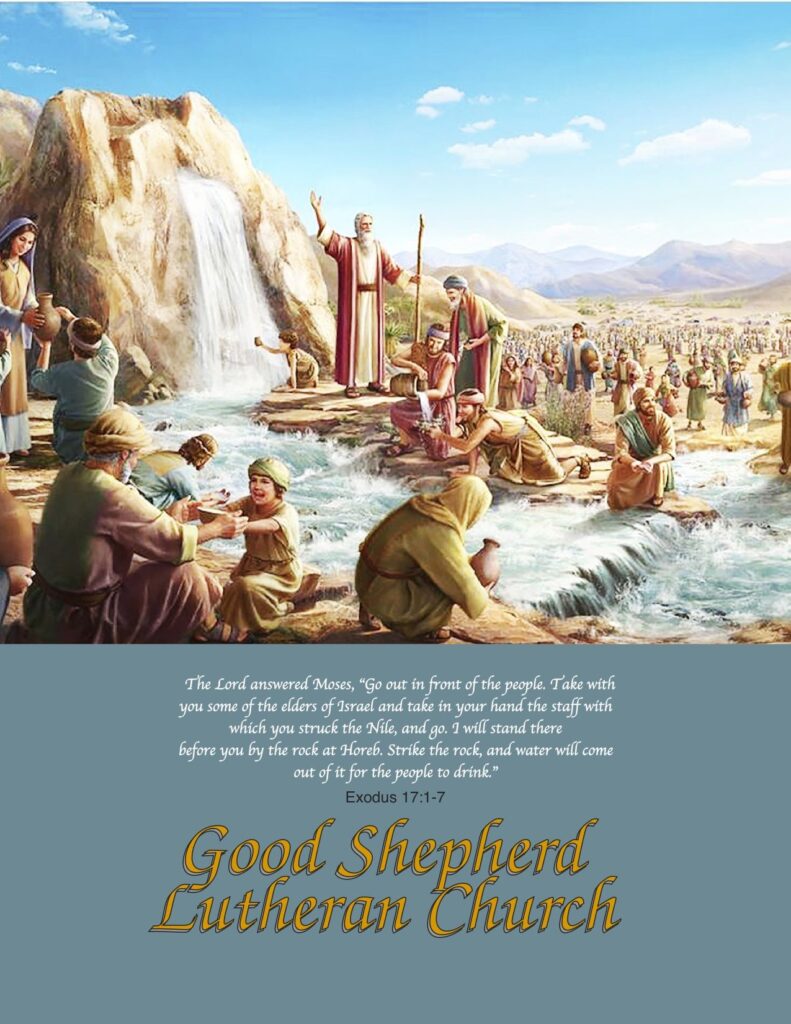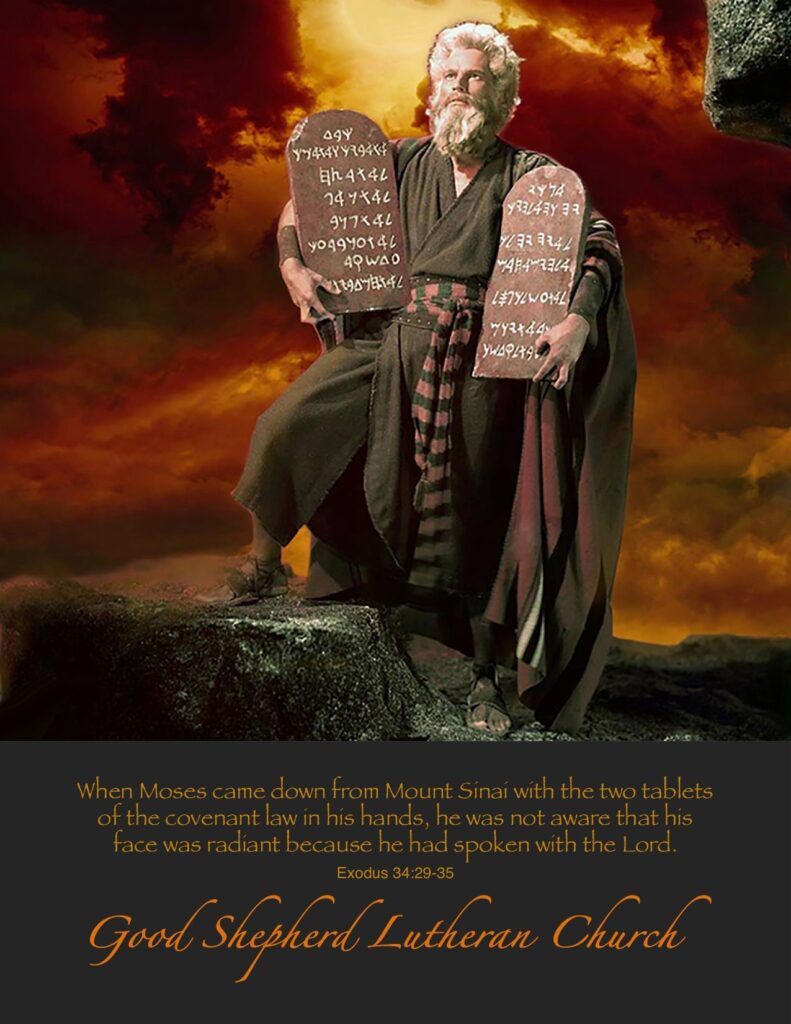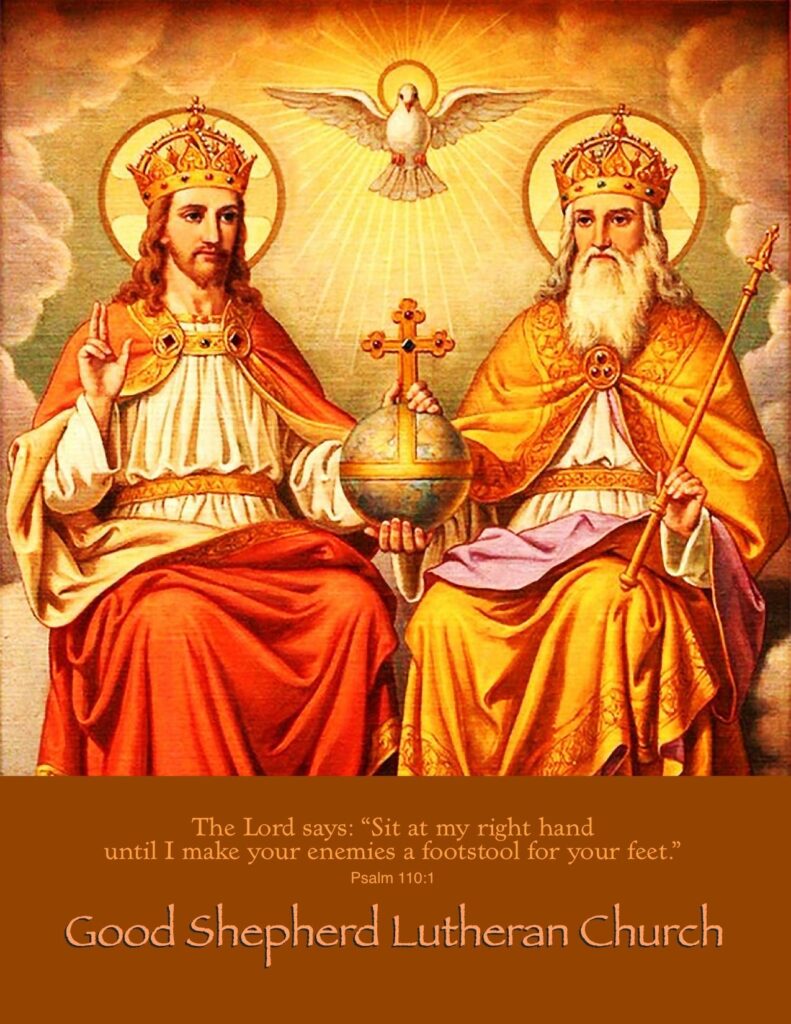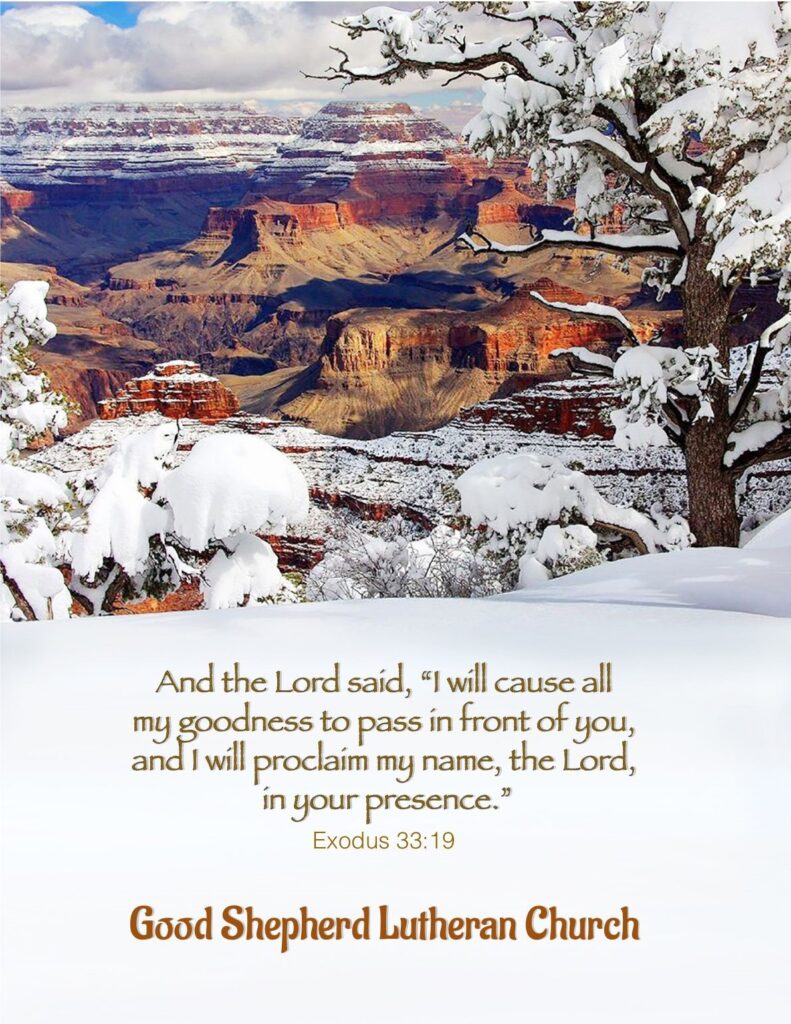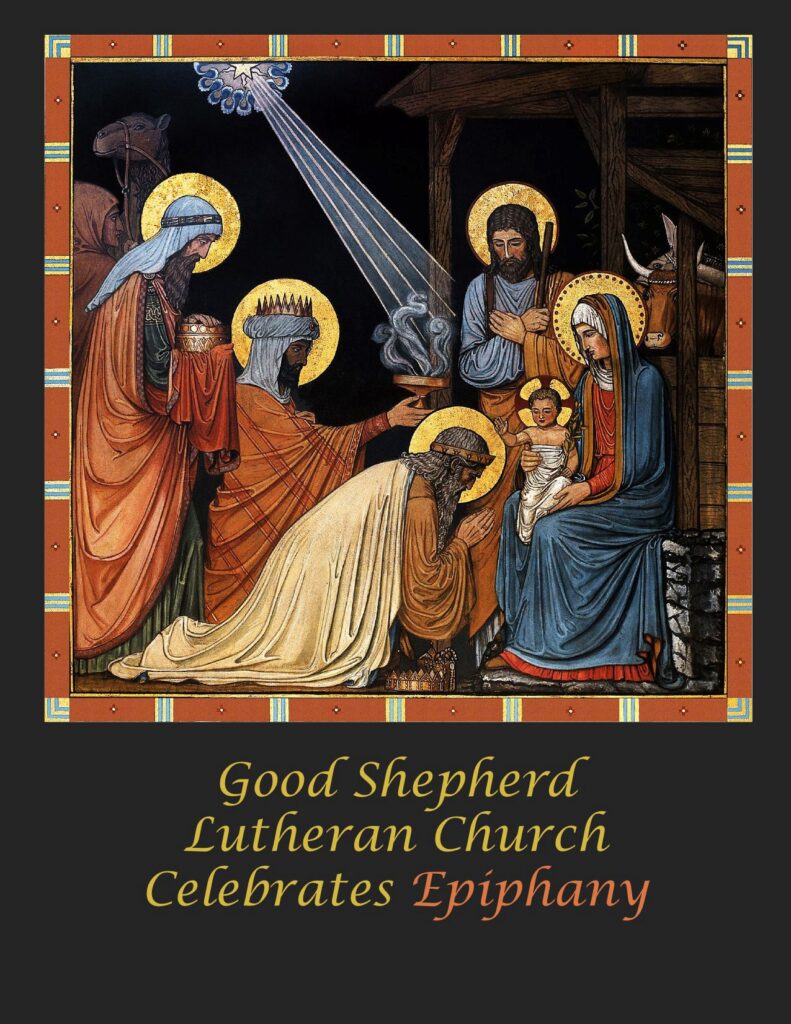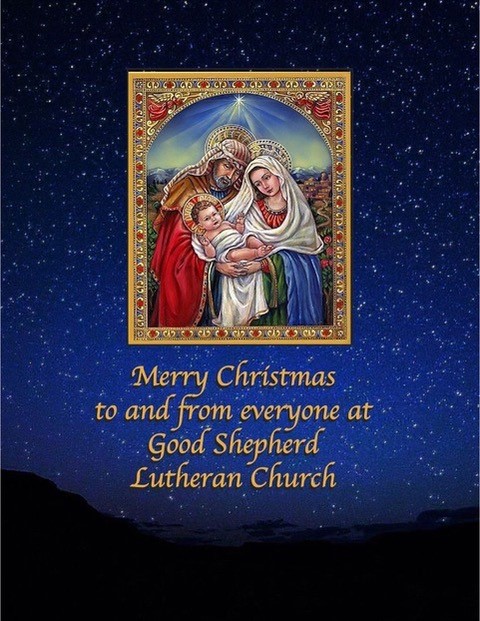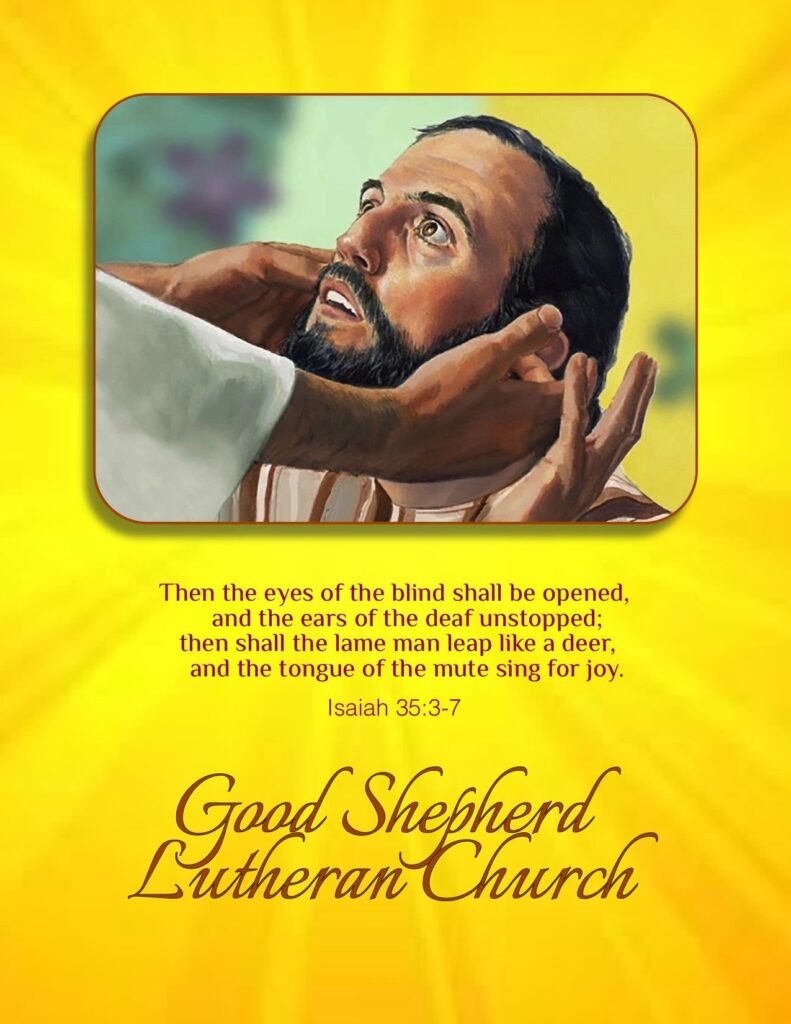
As Christians, we are to see with our ears. What do I mean? Anyone can tell you that eyes are for seeing and ears are for hearing. Yet, consider the Gospel for today. In many ways it follows in line with last week’s Gospel parable of the sower and the seed which represents the Word of God, especially when Jesus said: “He who has ears to hear, let him hear.”
For roughly three years, Jesus’ disciples had walked with Him. They saw with their eyes the miracles which Jesus worked. They saw Him teaching the truths of Scripture to the crowds and to them. And now, as His crucifixion is drawing near, Jesus tells His disciples what they would witness next. “See, we are going up to Jerusalem, and everything that is written about the Son of Man by the prophets will be accomplished. For He will be delivered over to the Gentiles and will be mocked and shamefully treated and spit upon. And after flogging Him, they will kill Him, and on the third day He will rise.
Through His words, Jesus would have the disciples see the necessity of His crucifixion and resurrection. He would have them see with their ears the things that were going to take place in Jerusalem were not by chance, but were divinely ordained and executed. Everything that He has been teaching the people and to them was leading to this Holy week. It was God’s idea and plan, which the prophets through the centuries had been prophesying and hoping for: the passion of God’s Messiah, the conquering of God’s kingdom over death by death: a perfect death to pay for sin. Yet, we are told upon hearing Jesus’ word, “…[the disciples] understood none of these things.” They couldn’t see the necessity of Jesus’ passion. They couldn’t see why He would be treated in such a shameful, offensive way. While the disciples could see with their physical eyes, their ears were blind to the Word of God. They heard but did not listen nor perceive, because they were only focused on what they wanted: for Jesus and themselves.
Now compare the disciples to the blind beggar. Being physically blind, the man must have suffered greatly throughout His life. He couldn’t see the world around him. As a result, he couldn’t provide for himself. He was completely and utterly dependent upon others.
Yet, as is common for those who lose one of their senses, the other senses are heightened. His ears were attuned to everything going on around him. And so, “Hearing a crowd going by, he inquired what this meant. They told him, ‘Jesus of Nazareth is passing by'” (Luke 18:36-37). And upon hearing these words, the man gets excited because he had heard of Jesus. He knew who Jesus was. He cries out, “‘Jesus, Son of David, have mercy on me!’ And those who were in front rebuked him, telling him to be silent. But he cried out all the more, ‘Son of David, have mercy on me!'” He could not physically see, but his “sight by His ears” was better than the disciples, because this man saw with his ears that Jesus was the Messiah.
He was not able to see on account of his own power or strength, as we confess, “I cannot by my own reason or strength believe in Jesus Christ my or come to Him…” He was able to truly see on account of the Word of God. Hearing the accounts of Jesus’ preaching and teaching and miracles, he has been given the ability to see what is most important– to know and believe who Jesus is. In crying out, “Jesus, Son of David…” This blind man sees Jesus as more than a rabbi or prophet. He sees Jesus as the promised Messiah, the Son of David, through whom God will bring forgiveness and eternal salvation.
In crying out, “…have mercy on me!”, he sees Jesus as the source of God’s mercy, a mercy that passes over sins and reconciles man to God, a mercy that endures forever. He sees Jesus as the hope of Israel, the consolation of the sorrowful, the redemption of mankind. The man now formerly blind sees with his ears, and then is saved by his faith.
Fellow redeemed, God would have us see with our ears. Yet, how easily we’re misled by what our eyes see. So much of what we see distracts us from what we should hear from the Lord. We see a world at war. We see economic hardship. We see broken families and relationships. We see sickness and death. The devil says, “See everything that’s going on around you. God doesn’t love you. He can’t save you from this. Why bother Him with your cries for mercy?” We are tempted to think that we must fear for ourselves, our goals, and seek out the voices of the world. So often we do fall into the devil’s trap using our flesh as bait. We do not trust the Lord, we turn to other idols, to other voices apart from the Lord which sadly lead to sin and eternal death.
That is why the devil is seeking to silence the Word of God. You heard this last week in the Parable of the Sower. Satan knows that, through the Word of God, ears can be opened to see the truth of God’s love for us in Christ Jesus. And so, the devil will try to use our eyes to lead us away from seeing and perceiving with our ears, what we need to hear.
Stop looking with your eyes in order to see God’s love for you. Repent of the times that you have sinned by following what you “see to be good for you” outside of Christ. Repent for looking to anyone or anything outside of Christ for your fulfillment. Repent of the times that you have heard God’s Word but haven’t listened. St. Paul writes in his second letter to the Corinthians, “We walk by faith and not by sight” (2 Cor. 5:7). How does this faith in Christ Jesus come to you? The Word of God! We walk by the faith that has been put into our ears by God’s Word (See Rom. 10:17). We walk by hearing, not by sight.
As we repent, and cry out: Jesus, Son of David, have mercy on me!’ Jesus speaks the words which gives our ears life, so that we can see. See God’s mercy, hope, and victory even in the crosses of this world. Jesus Christ was crucified and raised to pay for your sin so that you would not remain spiritually blind, but see Him as your loving Savior. He has overcome the world, the devil, death, and even your own weakness and sin. See now by faith how He continues to come to you in the midst of trouble and heart ache, He says: “Be strong; fear not! Behold, your God will come with vengeance, with the recompense of God. He will come and save you.” (Isaiah 35:4) And so He does.
His strength and comfort is here in Baptism, even if Satan will say that Baptism is just water and it can’t really save you. Yet, God would have you see with your ears that those baptismal waters are red as blood, for all who have been baptized into Christ Jesus were baptized into his death (Rom. 6:3). It’s God’s power of salvation which continues to save and comfort by bringing us into Christ.
He comes to you here to save you even if Satan says, “See this wafer and wine are nothing but bread and wine.” God would have you see with your ears that it’s Jesus’ very body and His very blood, crucified and raised for you. He gives it to you to eat and to drink for the forgiveness of all your sins, and to strengthen you in body and soul against Satan and all misfortune.
Look by faith to the cross of Jesus Christ, where Satan says of Jesus, “See, it just a man nailed to the cross.” God would have you see with your ears, “Father forgive them”. While Jesus had no form or majesty that we should look at him, and no beauty that we should desire him, on the cross, Jesus bore our griefs and carried our sorrows. He was pierced for your transgressions. He was crushed for your iniquity. Upon Him was the chastisement, the wrath that brought you peace with God. Through His wounds, you’re healed – forgiven of every sin.
Risen from the dead, everything that was written about the Son of Man by the prophets has been accomplished for you. It’s been laid forth in the pages of Holy Scripture, so that you may see with your ears that, through His Word and Sacraments, you’ve been saved from sin and the blind fear, anxiety, and unbelief that follows it.
In the face of suffering and temptation, the blind man saw with his ears, he trusted and believed in Jesus as the promise Messiah. And having seen Jesus with His ears, Jesus not only brought physical healing to Bartimaeus but spoke words of life. “Your faith has made you well.” Literally, “Your faith has saved you.”
You have this same promise too. Your faith from the Lord which clings to Christ and His promises of forgiveness, has saved you. Proven by His precious blood and innocent suffering and death on the cross. And while you only can see Jesus with your ears by faith now, the day is coming where the vale will be removed. The things unseen with physical eyes will be seen. And when the mortal body has put on immortality, you will no longer see Jesus with your ears alone but with your eyes for all eternity. God be praised. Alleluia! Amen!
Pr. Aaron Kangas

